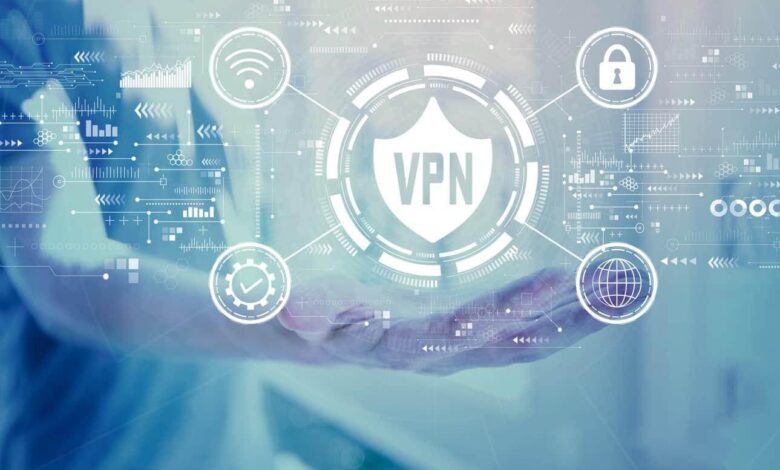The Role of VPNs in Remote Work Security

The landscape of work has transformed dramatically over the past few years. Remote work, once considered a luxury or temporary arrangement, has become the standard for millions of employees worldwide. With this shift comes a pressing need to address cybersecurity challenges that organizations never had to consider when employees worked exclusively from secure office environments.
As workers connect to company networks from coffee shops, home offices, and co-working spaces, the traditional security perimeter has essentially disappeared. This new reality makes Virtual Private Networks (VPNs) more critical than ever before. Companies like PlanetVPN have witnessed a surge in demand as businesses scramble to protect their digital assets and maintain secure communications across distributed teams.
Understanding the Remote Work Security Challenge
When employees work from remote locations, they face numerous security risks that simply don’t exist in traditional office settings. Public Wi-Fi networks at airports, hotels, and cafes are notorious hunting grounds for cybercriminals who use packet sniffing and man-in-the-middle attacks to steal sensitive information. Home networks, while generally safer than public ones, often lack the enterprise-grade security measures found in corporate environments.
The challenge extends beyond just network security. Remote workers frequently access company databases, customer information, and proprietary documents from devices that may not have the same level of security monitoring and protection as office computers. Without proper safeguards, a single compromised device or unsecured connection can serve as a gateway for attackers to infiltrate entire corporate networks.
How VPNs Address Remote Work Vulnerabilities
Virtual Private Networks create encrypted tunnels between remote devices and company servers, effectively extending the corporate network’s security perimeter to wherever employees happen to be working. This encryption ensures that even if data is intercepted during transmission, it remains unreadable to unauthorized parties.
Modern VPN solutions go far beyond simple encryption. They incorporate advanced authentication mechanisms, including multi-factor authentication and certificate-based verification, to ensure that only authorized users can access company resources. Many enterprise VPN services also include features like split tunneling, which allows organizations to route only specific traffic through the VPN while permitting other activities to use local internet connections.
The secure storage of digital assets becomes particularly important when considering cloud-based resources and shared documents. VPNs help protect these assets by ensuring that access requests are properly authenticated and encrypted, regardless of where employees are connecting from. Services like PlanetVPN offer robust encryption protocols that meet industry standards for protecting sensitive business information.
Privacy Considerations in Remote Work
Privacy concerns in remote work environments extend beyond protecting company data. Employees working from home may inadvertently expose personal information or compromise their own privacy while conducting business activities. VPNs help address these concerns by masking IP addresses and preventing internet service providers from monitoring or logging business-related online activities.
The distinction between personal and professional privacy becomes particularly important when employees use personal devices for work purposes. A comprehensive VPN solution helps maintain this separation by ensuring that work-related traffic remains encrypted and separate from personal browsing activities.
Best Practices for VPN Implementation
Organizations implementing VPN solutions for remote work should consider several key factors. First, the chosen VPN service must offer sufficient bandwidth and server capacity to handle the increased load from distributed teams. Slow connections can significantly impact productivity and may tempt employees to bypass security measures for convenience.
Regular software updates and patch management become crucial when employees work from various locations and devices. The best VPN providers, including PlanetVPN, automatically update their client software to address newly discovered vulnerabilities and maintain optimal security postures.
Training plays an equally important role in successful VPN deployment. Employees need clear guidance on when and how to use VPN connections, particularly when switching between different networks throughout their workday. Organizations should establish clear policies regarding VPN usage and provide ongoing education about emerging security threats.
Emerging Trends in VPN Technology
The VPN industry continues to evolve in response to changing remote work needs. Zero-trust network architecture is gaining popularity as organizations move away from traditional perimeter-based security models. This approach requires authentication and verification for every connection attempt, regardless of the user’s location or previous access history.
Cloud-based VPN solutions are also becoming more prevalent as they offer greater scalability and easier management compared to traditional hardware-based systems. These solutions can automatically scale to accommodate fluctuating numbers of remote users without requiring significant infrastructure investments.
Artificial intelligence and machine learning technologies are being integrated into modern VPN solutions to detect unusual traffic patterns and potential security threats in real-time. These advanced features help organizations identify and respond to security incidents more quickly than traditional monitoring methods.
Conclusion
As remote work continues to reshape the modern workplace, VPNs have evolved from nice-to-have tools into essential security infrastructure. The combination of encryption, authentication, and privacy protection that VPN services provide addresses the fundamental security challenges of distributed teams.
Organizations that invest in robust VPN solutions like PlanetVPN position themselves to reap the benefits of remote work while maintaining the security standards necessary to protect their digital assets and maintain customer trust. The key lies in selecting the right solution, implementing it properly, and maintaining ongoing vigilance as the threat landscape continues to evolve.
The future of work is undoubtedly flexible and distributed, making VPN technology not just relevant but absolutely critical for business success in the digital age.




